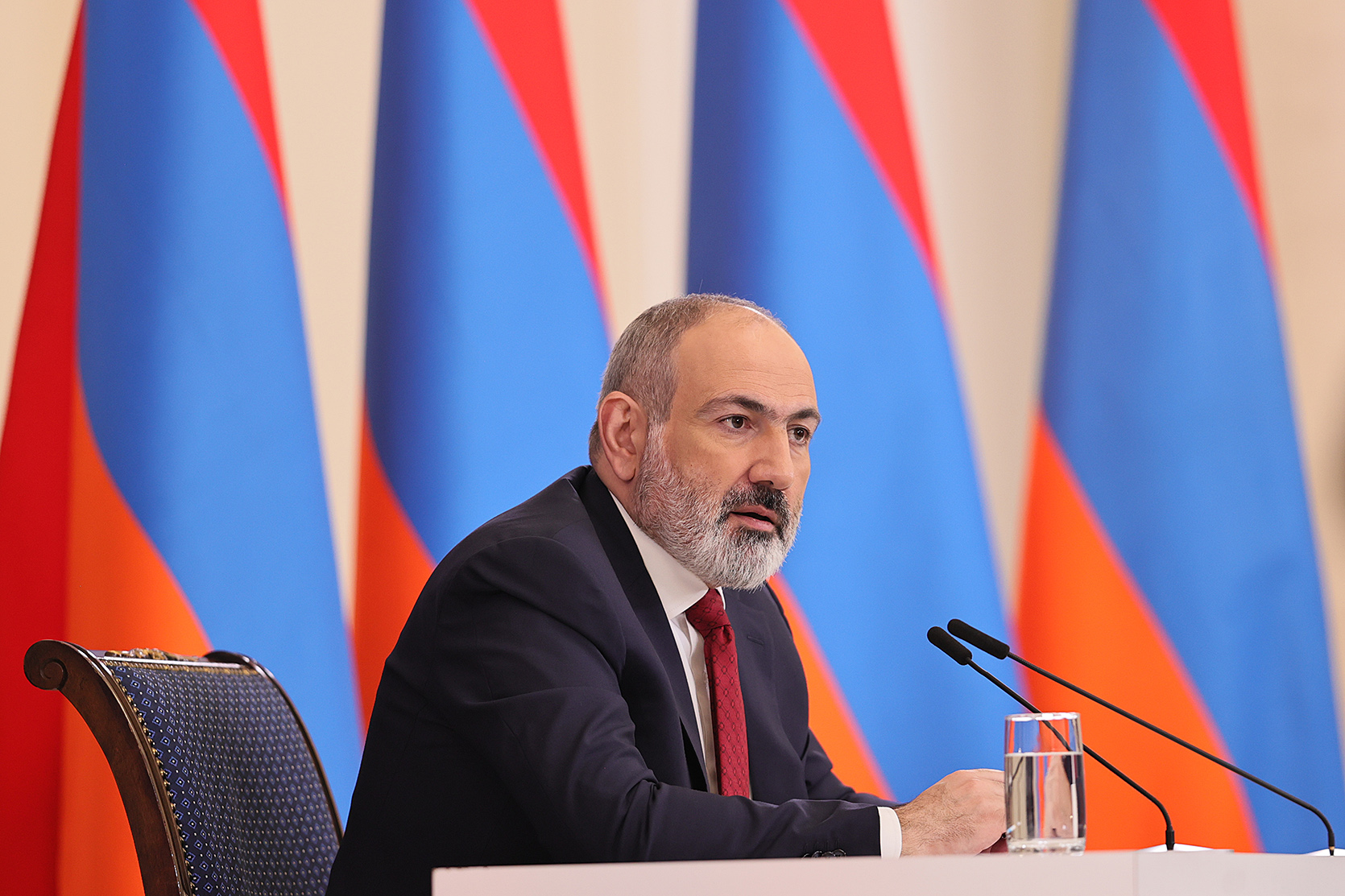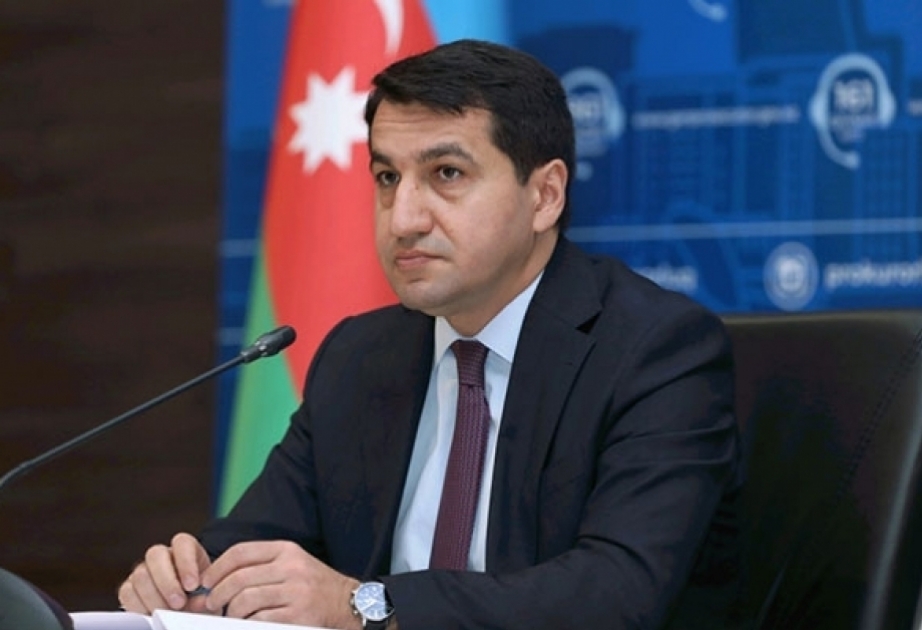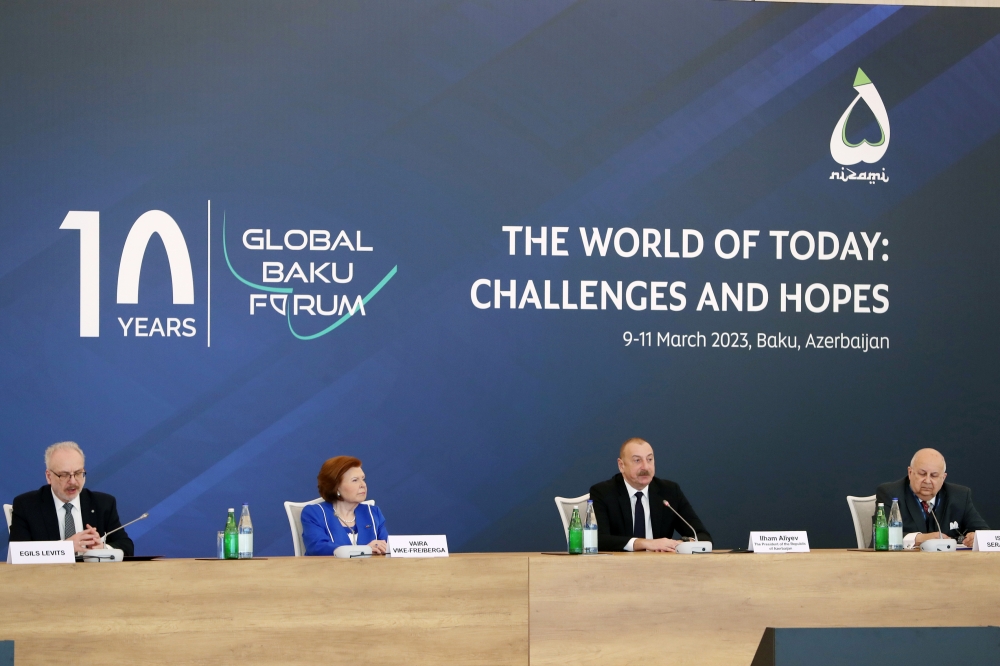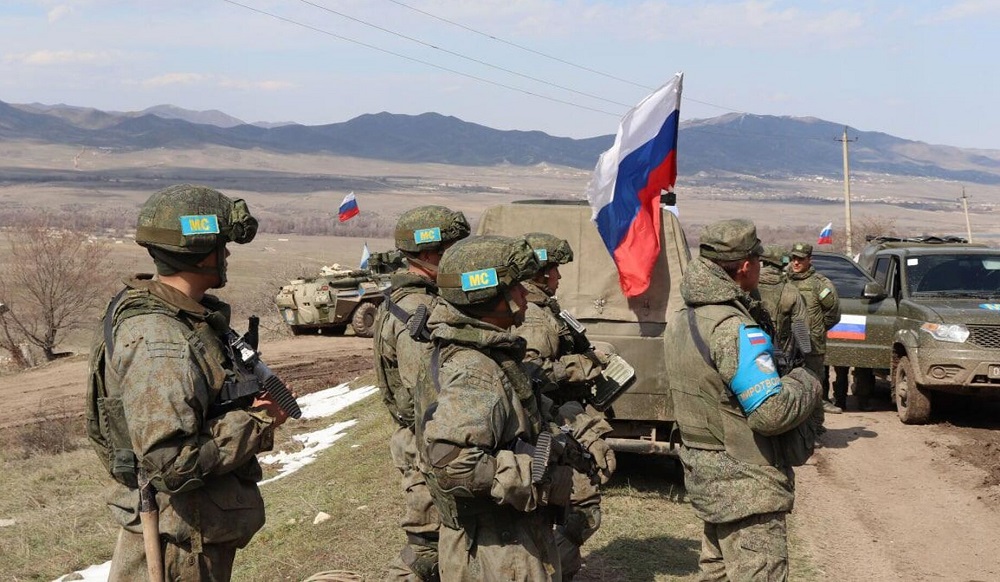“Baku is left with no other choice” - comments from Azerbaijan
Azerbaijan’s reaction to Pashinyan’s statement
The Ministry of Foreign Affairs of Azerbaijan commented on the statements of the Prime Minister of Armenia Nikol Pashinyan made on March 14 at a press conference. According to the head of the press service of the Azerbaijani Foreign Ministry, Aykhan Hajizade, Pashinyan’s rhetoric does not portend “anything good” for Armenia. “The signals coming from Khankendi indicate that Baku is left with no other choice,” political commentator Haji Namazov said.
- Europe calls on Azerbaijani authorities to change law “On political parties”
- Georgia authorities say Tbilisi protests aimed to overthrow government
- Who votes “pro-Russia” in the EU parliament and how
Hajizade maintained that Pashinyan’s statements contained “absolutely unfounded and grossly distorting historical facts, [which] deal another blow to the process of establishing peace in the region.”
“The anti-Azerbaijani campaign that Pashinyan is conducting, evading his own commitments and his own promises made on various international platforms, his rhetoric, nullifying the negotiations on a peace treaty and the efforts of international mediators, does not bode well for Armenia. Pashinyan’s denial of the fact of the forcible expulsion of Azerbaijanis from their lands on the territory of present-day Armenia testifies to the intention to continue to justify Armenia’s systematic and targeted policy of ethnic cleansing” Hajizade said.
According to him, “the physical destruction of peaceful Azerbaijanis living on the territory of Armenia, the perpetration of bloody massacres against them, the forced relocation of the population through intimidation – all these are historical facts”:
“In order to have a complete picture of the scale of violence and the deportation of Azerbaijanis from the territory of present-day Armenia, it is enough for the Prime Minister to get acquainted with what changes have taken place in the ratio of the Azerbaijani and Armenian population in the region. It is well known that once the Azerbaijanis were the majority in the territory of present-day Armenia, but now there is none left there, and this is the result of a targeted policy.
The Armenian leadership does not want to recognize the right of Azerbaijanis to a safe and dignified return to their native lands, opposing the call for dialogue of the Community of Western Azerbaijan, which includes hundreds of thousands of Azerbaijanis, and present their legitimate demands as “territorial claims.” This suggests that the leadership of Armenia does not attach any importance to the concept of “human rights” and intends to continue its policy of maintaining the title of a mono-ethnic state.”
Hajizade went on, saying that “the next attempts of the Prime Minister of Armenia to intervene in the issue of dialogue with the Armenian residents of the Karabakh region, as well as his provocative statements against the internationally recognized sovereignty and territorial integrity of Azerbaijan, the use of such expressions on his part are unacceptable as “the people and government of Karabakh”:
“Ignoring the position of Azerbaijan, which consists in the fact that discussions on the reintegration of residents of Armenian origin are an internal affair of Azerbaijan, and that foreign states have no role here, indicates that Armenia does not abandon its aggressive policy launched against our country in the early 1990s under the pretext of “self-determination of peoples”.
The Prime Minister of Armenia must understand that the rights of residents of Armenian origin in the Karabakh region can never be higher than the rights of the Azerbaijani population of the region, Azerbaijan applies and will apply only an equal approach towards various ethnic peoples living on its territory.”
“The accusation that Azerbaijan has not yet fulfilled any agreements and obligations, the assertion that Azerbaijan is escalating the situation in the border areas is just a step aimed at covering up its possible military provocations.
Armenia is not interested in signing a peace treaty, since it opposes clauses excluding territorial claims against Azerbaijan, presents its non-constructive approach as the ideas of “international mechanisms” and “international institution of guarantees”. The fact that the Armenian side, which last canceled negotiations on a peace treaty last December, is opposing EU mediation efforts under various pretexts, indicates that it intends to continue the practice of obstructing negotiations, which it has been engaged in for almost 30 years.
At the briefing, the Prime Minister of Armenia announced his readiness to sign the draft, which only mentioned the proposals of Armenia and did not take into account the proposals of Azerbaijan, which is more proof of his disinterest in the peace process. We believe that these destructive actions of Armenia should be stopped and condemned by the international community,” Hajizade concluded.
Expert comment
Pashinyan’s statements at the press conference on March 14 were commented on by political observer Haji Namazov for JAMnews.
According to him, “most of the statements of the head of the Armenian government were aimed at the domestic public”:
“Azerbaijan should not draw far-reaching conclusions from Pashinyan’s statements. It is clear that most of his thoughts were for domestic consumption.
Let’s take, for example, his appeal to international organizations to send observers to Karabakh. Pashinyan is not a stupid man, he is well aware that this is not only unrealistic, but even theoretically impossible. The fact is that Karabakh is the sovereign territory of Azerbaijan, and the whole world recognizes it as such. Including Armenia itself, because Pashinyan himself announced the recognition of the territorial integrity of Azerbaijan.
Of course, there is one option in which international forces could enter Karabakh without the consent of Azerbaijan. This is possible only if such a decision is made by the UN Security Council. But there Russia has the right of veto, and Russian troops are in Karabakh. So, it would be worth forgetting about it.”
Namazov also shared his opinion about a possible escalation of tension in Karabakh and on the Azerbaijan-Armenia border, which Pashinyan also hinted at:
“Speaking of a possible escalation in the near future, Nikol Pashinyan tried, as it were, to get ahead of events and play it safe.
An escalation on the still undelimited border between the two countries is unlikely. Azerbaijan took possession of the dominant heights there in September last year, and does not forget about the presence of European observers “over the hill”.
But in Karabakh, an anti-terrorist operation, and a large-scale one, is quite likely. If we analyze the latest events in this small region, to assert the opposite is to deceive ourselves.
Azerbaijan proved by the transportation of ammunition along the Lachin road. The peacekeeping contingent did not react to this in any way, and Armenia denies the accusations.
Of course, there is hope for a successful outcome of negotiations with representatives of the Karabakh Armenians, but the signals that come from Khankendi indicate that Baku is left with no other choice.”






















